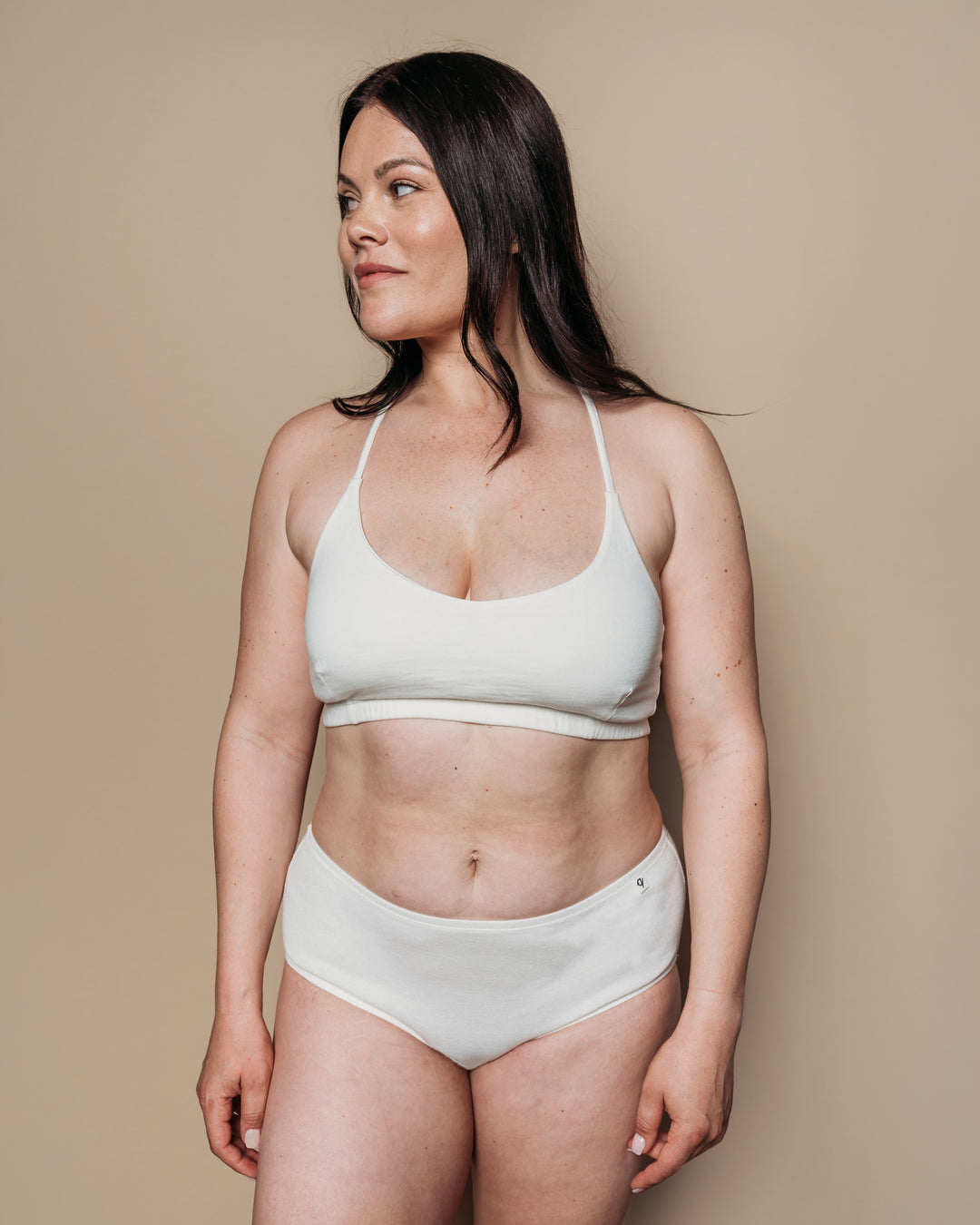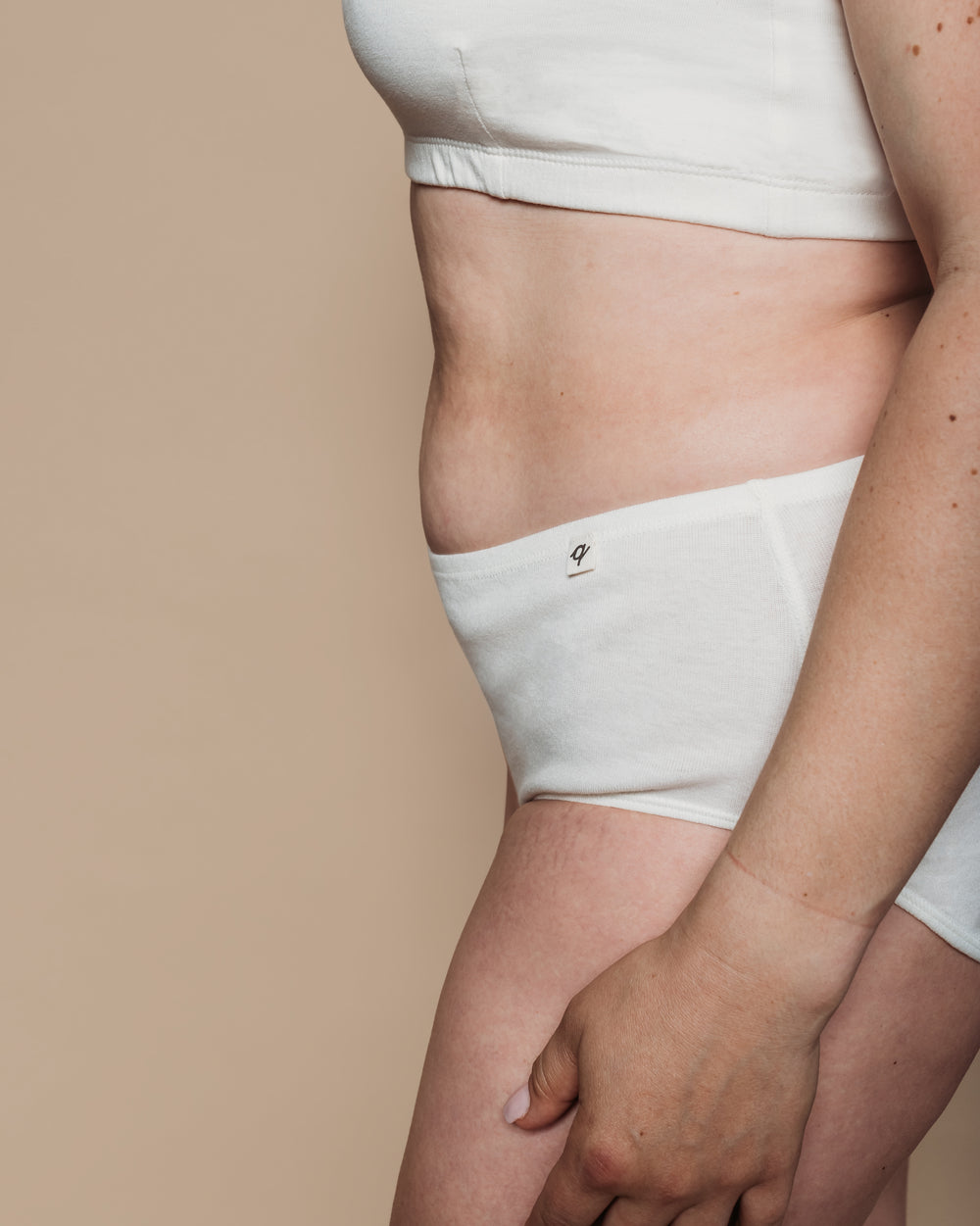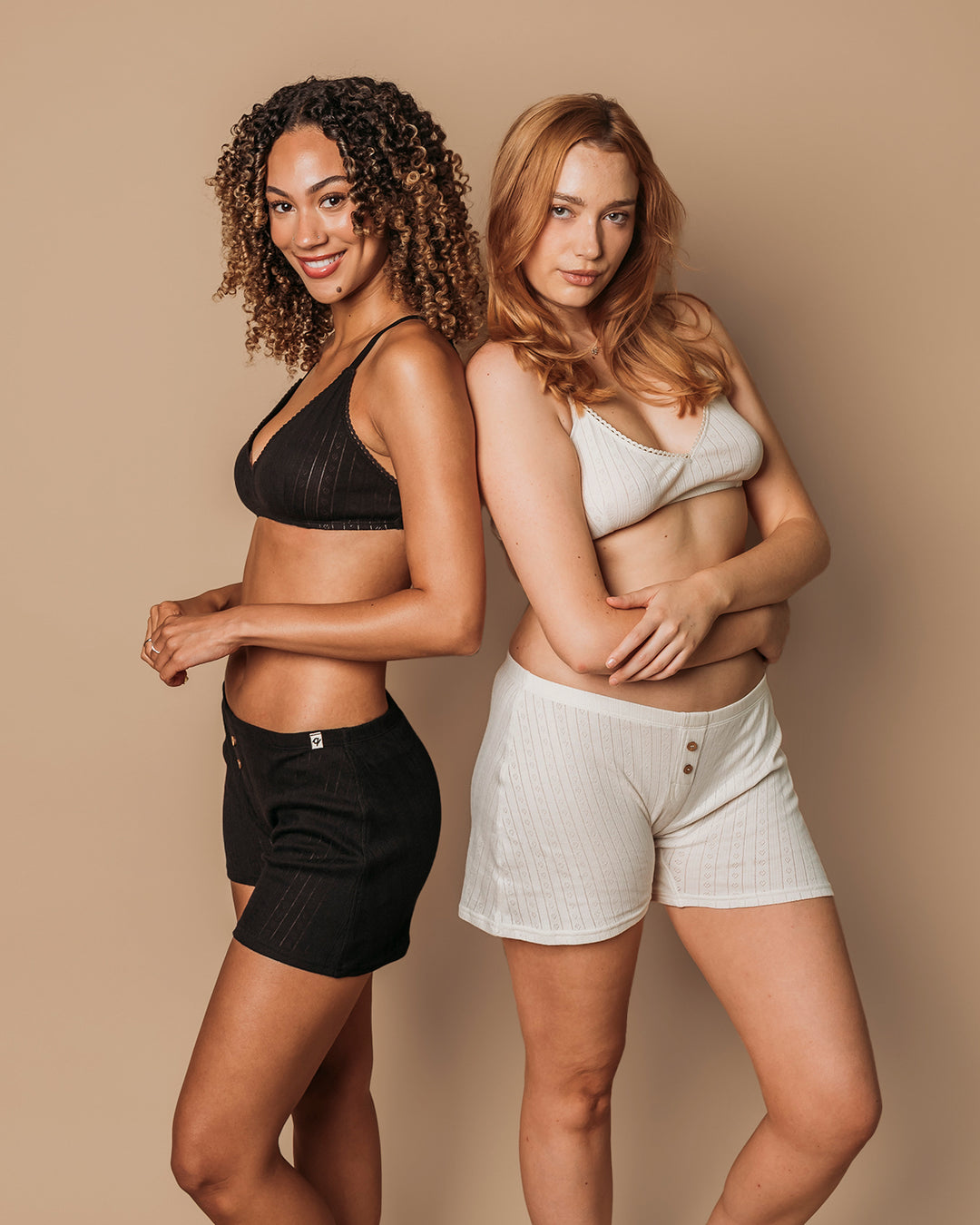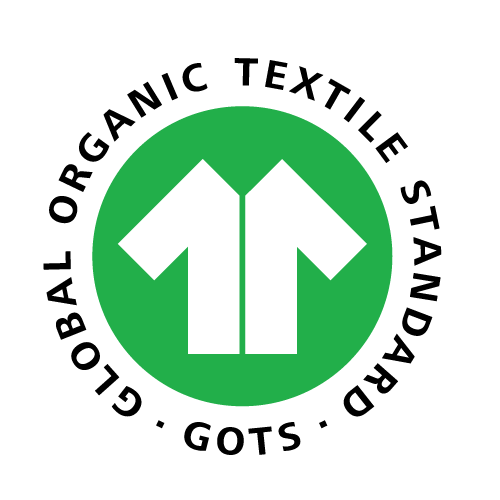At Q for Quinn, our mission has always been to create the safest, softest, and most sustainable essentials for you and your family. From the beginning, we've been committed to using natural, certified organic materials that are gentle on the skin and kind to the planet.
So why do some of our products still contain a small amount of non-biodegradable components?
It’s a thoughtful question—and one we’ve spent years researching and navigating. We want to take you behind the scenes to explain why some synthetics are still used in our trims, and how we’re actively working to reduce or eliminate them.
What’s important to know is that the use of synthetics—especially in trims like thread, elastic, and labels—is still very common across the apparel industry. While many brands highlight the main fabric content (as we do), most garments today rely on synthetic trims to provide the durability, stretch, and performance consumers have come to expect. Industrial manufacturing has not yet fully adapted to using biodegradable materials like natural, cotton thread—but we’re working to help change that, with a roll out of biodegradable products in late 2025, starting with our Pointelle Collection.
It’s also important to note that any synthetic materials we use, no matter how minimal, are OEKO-TEX® Standard 100 certified to ensure they’re free from harmful substances. All of our trims are also GOTS approved, meeting the strict standards required for products labeled "organic."
We’ve chosen to be transparent about every part of our process—even when it’s not expected—because you deserve to know exactly what you’re putting on your skin and supporting with your purchase.
The Tradeoffs We’ve Made—And Why
1. Durability
Durability is one of the biggest reasons we’ve used synthetic materials in the past -specifically in trims like thread and elastic.
For example, we use recycled polyester thread to reinforce the heel and toe in our socks because it helps hold the seams together through repeated wears and washes. Without it, we are concerned your socks may only last a few months. With it, many of our customers report wearing theirs for 1-2 years or longer.
We have, though, introduced cotton thread all our new underwear in 2025! The compromise here was less a concern.
2. Availability of Natural Alternatives
The good news? Biodegradable options are on the rise. The less good news? They’re still in limited supply, and often don’t meet our standards for comfort, durability or performance—yet.
Take elastic, for example. Natural rubber elastics are not only difficult to source in the specifications we need, but they also come at a high cost, which could make our products inaccessible to many customers. However, we're currently testing biodegradable elastics in our new underwear, and if they pass our rigorous standards for quality and durability, you’ll start to see them rolled out in future collections.
3. Fit and Comfort
Natural fibers have limited stretch. That’s why you rarely see all-cotton compression socks or sports bras. In certain garments, like our fitted underwear or bras, we use fabrics with a small percentage of elastane to provide the stretch and support needed to fit well and cater to different body types.
Fit is more than just aesthetic—it’s about making people feel confident, comfortable, and included.
Where We Use Synthetics (Today)

Transparency is a core value for us. Here’s exactly where synthetics show up in our products:
-
Elastics: Our waistbands and cuffs (like those in our underwear and socks) use a blend of polyester and elastane, covered with fabric for comfort. All our elastics are OEKO-TEX® Standard 100 certified to ensure they’re free from harmful chemicals.
Please note, our newest Pointelle collection uses a rubber-cotton biodegradable elastic. -
Thread: We reinforce our socks with recycled polyester thread. However, we are in the process of transitioning all undergarments to cotton thread.
Where we have replaced synthetics recently:
Our trims:
Our newest underwear collection, Pointelle will utilize 100% biodegradable trims in all trims except for the hook and eye piece of the bra.
The elastics are made from a natural rubber - organic cotton blend and we will use 100% organic cotton thread.
Every one of our production of our underwear will include 100% organic cotton thread (all styles, including kids). It will take 6-12 months to roll out to our complete underwear collection.
These might all be a little confusing. We recommend checking the "Fabric & Care" section of each product for accurate details on the trims.

Our packaging & labeling:

Completely biodegradable packaging and labeling: 100% cotton biodegradable care labels to replace synthetic tags, paper, biodegradable packaging.
Our Vision: Biodegradable, Ethical, and Built to Last

Our long-term goal is to create a fully biodegradable line of essentials—without compromising on quality, durability, or fit. We’re making steady progress, from testing biodegradable trims to exploring low-impact alternatives in our supply chain.
We will begin rolling out completely underwear with completely biodegradable trims in 2025 starting with our Pointelle Collection.
The journey to a plastic-free future is not always straightforward—but it’s one we are deeply committed to. Thank you for holding us accountable, and for supporting a small business that’s constantly striving to do better.
If you have questions or feedback, please reach out—we’re always listening.



























Leave a comment